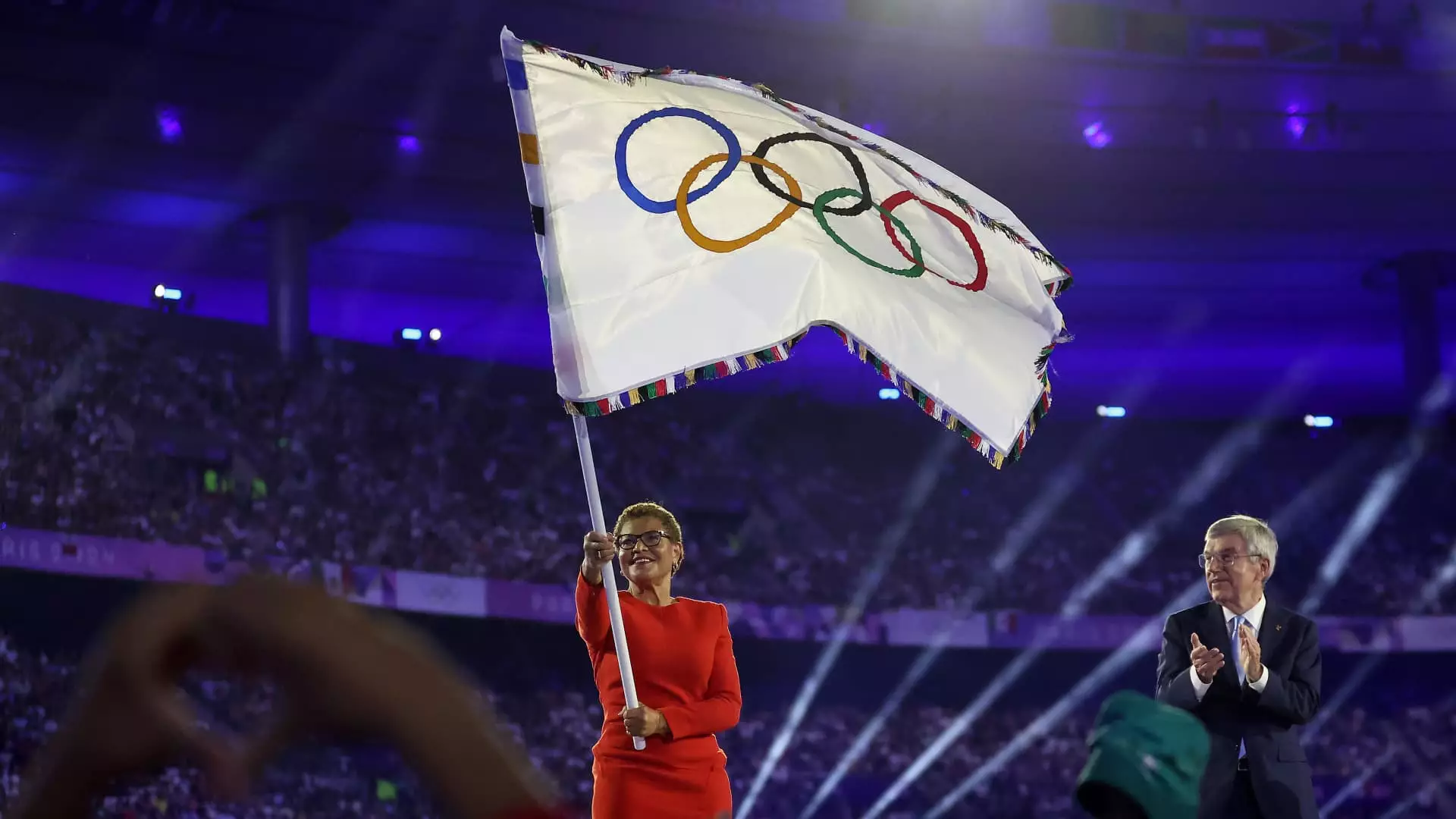Looking ahead to the 2028 Olympics in Los Angeles, city officials are already planning various initiatives to ensure the successful hosting of the Games. Mayor Karen Bass emphasized the need to prepare the city’s infrastructure, particularly public transportation, to accommodate the influx of visitors. Bass expressed her hope that attendees would utilize public transportation to access the venues, reducing the reliance on cars and alleviating traffic congestion. This ambitious goal would require significant investments in bus and subway systems, as well as collaboration with neighboring cities to enhance transportation options.
In addition to upgrading public transportation, Bass highlighted the city’s efforts to address street homelessness in preparation for the Games. With plans to construct over 18,000 new housing units for the unhoused population, Los Angeles aims to create a more inclusive and welcoming environment for both residents and visitors during the Olympics. Moreover, discussions are underway with local businesses to adjust work schedules and delivery times to minimize traffic disruptions, drawing inspiration from the successful strategies implemented during the 1984 Games.
Venue Utilization and Cultural Showcase
Unlike previous Olympic host cities, Los Angeles does not plan to construct new permanent venues for the 2028 Games, opting instead to leverage existing landmarks and facilities. While this approach offers cost-saving benefits, it also presents challenges in showcasing the city’s iconic locations in a unique and engaging manner. LA 2028 President Casey Wasserman emphasized the importance of utilizing the city’s diverse landmarks and cultural assets to create a memorable Olympic experience for attendees.
One potential focal point for the Games is the Hollywood Sign, a symbol synonymous with the entertainment industry and Los Angeles’ rich cultural heritage. Wasserman discussed the possibility of creatively incorporating the Hollywood Sign into the Olympic festivities, similar to the CGI-enhanced display during the torch handover ceremony. While acknowledging the complexity of such an endeavor, Wasserman viewed it as an exciting opportunity to showcase the city’s creativity and innovation on a global stage.
Actress Jessica Alba, a board member of Los Angeles 2028, echoed Wasserman’s sentiments about highlighting the city’s multifaceted culture during the Olympics. From Hollywood glamour to fashion trends and culinary delights, Alba emphasized the desire to present Los Angeles as a vibrant and diverse destination for visitors worldwide. By positioning the city as a central character in the Olympic narrative, organizers aim to celebrate its unique identity and showcase the best of what Los Angeles has to offer to a global audience.
As Los Angeles prepares to host the 2028 Olympics, city officials, organizers, and stakeholders are committed to overcoming challenges and maximizing opportunities to create a memorable and successful event. By focusing on infrastructure improvements, transportation enhancements, venue utilization, and cultural showcases, Los Angeles aims to set a new standard for hosting the Olympic Games. With careful planning, innovative solutions, and collaborative efforts, the city is poised to deliver a world-class experience that celebrates its rich heritage, diversity, and spirit of innovation.

Leave a Reply